“Theology would be incomplete without horror.”
It is hard to replicate the exact expressions I see when I tell Christians that I teach a course entitled “Gothic Horror Literature.” Responses range from stunned silence—mouth agape—to reserved but tepid ‘Oh, that’s interesting’—not sure whether or not to smile—to immediate judgment ‘Well, that doesn’t sound very nice’—complete with raised eyebrow, pursed lips, and dagger stare. But when I talk with young people–just mentioning the title–eyes dance and furtive smiles emerge behind an expression of intrigue. You see, “horror” literature is simply an examination of our true selves; the monster within.
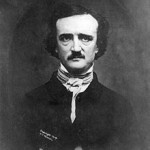 I once mentioned that Edgar Allan Poe was my favorite author in high school. My audience was Christian school teachers. On my comment cards read after the event I noticed that someone had questioned my salvation, writing an explanation of the gospel on the back of the card.
I once mentioned that Edgar Allan Poe was my favorite author in high school. My audience was Christian school teachers. On my comment cards read after the event I noticed that someone had questioned my salvation, writing an explanation of the gospel on the back of the card.
No, we are not morbid when we study “Gothic horror.” Indeed, we are enlivened by the genre’s importance in everyday life. “Horror literature” is honest to whom we are. “Horror literature” exposes the darkness of soul we each experience but don’t like to admit. “Horror literature” is not risqué, immoral, amoral, or inappropriate. Indeed, we meet “horror literature” in Genesis 3: “she saw, she ate, he ate, they hid.”
The word “horror” literally means to shudder, to bristle with fear. That sounds vaguely familiar.
But the LORD God called to the man and said to him, “Where are you?” And he said, “I heard the sound of you in the garden, and I was afraid, because I was naked, and I hid myself.”
Our problem in this culture is not horror literature, horror films, or horrible monsters. Our problem, as the cartoon Pogo so well described is “We have seen the enemy and he is us.”
 For those of us old enough to remember, Rod Serling was the master of horrific suspense in the 1960’s delivering a television show entitled The Twilight Zone. Of the many memorable episodes “Terror at 20,000 Feet” lives in infamy. A very young William Shatner plays a man who sees a gremlin tearing up the plane wing as he looks out from his window seat. Shatner’s character becomes enraged, trying in desperation to gain the attention of the crew, terrified that the plane will be brought down by this hideous monster. Finally, on the ground with Shatner sedated, the truth is displayed for all to see: indeed, the wing of the plane had been clawed, cables ripped, jagged metal, evidence of foul play. Reading Gothic horror literature, we become William Shatner’s character. We raise our voices, we wave our arms, our temperament becomes just a bit erratic, as we attempt to get the attention of others on the plane.
For those of us old enough to remember, Rod Serling was the master of horrific suspense in the 1960’s delivering a television show entitled The Twilight Zone. Of the many memorable episodes “Terror at 20,000 Feet” lives in infamy. A very young William Shatner plays a man who sees a gremlin tearing up the plane wing as he looks out from his window seat. Shatner’s character becomes enraged, trying in desperation to gain the attention of the crew, terrified that the plane will be brought down by this hideous monster. Finally, on the ground with Shatner sedated, the truth is displayed for all to see: indeed, the wing of the plane had been clawed, cables ripped, jagged metal, evidence of foul play. Reading Gothic horror literature, we become William Shatner’s character. We raise our voices, we wave our arms, our temperament becomes just a bit erratic, as we attempt to get the attention of others on the plane.
I was on a plane just a few months ago, trying desperately to get someone’s attention. She is a professor at Indiana University. You know how this goes: you greet your fellow passenger and if she responds, and a conversation ensues, you take it wherever it will go. My professorial seatmate chatted about her specialty—environmental architecture—until she asked what I did. When I told her I was a professor as well, she further inquired as to my field of study. When I responded that it is theology, she asked what I taught. I mentioned that I was about to engage one of my adjunct roles for a high school class the next day on Gothic horror literature. Her eyes widened, and with a response I won’t soon forget, she said, “Theology would be incomplete without horror.”
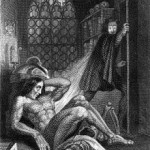 Without missing a beat my seatmate then told me that her husband, who grew up in a Christian home & church, would not allow the subject of religion to be spoken of in the home now. When I inquired as to why that might be she said he was tired of all the rules. But then she looked me in the eye and said, “Perhaps if he had studied Gothic horror literature, his view of religion might have been different.”
Without missing a beat my seatmate then told me that her husband, who grew up in a Christian home & church, would not allow the subject of religion to be spoken of in the home now. When I inquired as to why that might be she said he was tired of all the rules. But then she looked me in the eye and said, “Perhaps if he had studied Gothic horror literature, his view of religion might have been different.”
You see, natural rules only work to subvert our acknowledgement of a supernatural world. If we can box and tame our world with human standards, we will not have to address divine standards. The difference of the Christian message is that since Genesis 3 we know two things: there are monsters outside of us and there is a monster within.
We have been battling our own horror show, the monster living inside each of us. Horror literature does something other literature does not. St. Cyril of Jerusalem said it best centuries ago:
The Dragon is by the side of the road, watching those who pass. Beware lest he devour you. We go to the Father of Souls, but it is necessary to pass by the dragon.
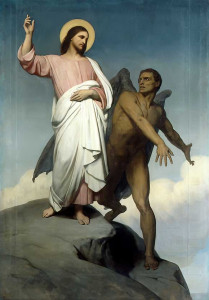
Ary Scheffer, 1854
One of the major themes in books we have studied is the war between “good” and “evil”. People all over the world write about this struggle because the truth of it has affected everything and everyone from the beginning of time. When Christians read and think about these books there are six important principles to follow:
(1) “Evil” is real, historical, and personal (Gen 3:1-6; 1 John 3:8; Rev 12:7-9)
(2) There is no possibility that “evil” will win (Ps 2; Col 2:13-15; Rev 19:11-21)
(3) “Evil” people follow the principles of “the evil one” (2 Cor 11:13-15; 1 Jn 3:10)
(4) Any “good” thing comes from The Good God (Mark 10:17-18; James 1:17)
(5) “Good” people follow laws, rules, and principles that come from The Good God (1 Jn 3:7, 9, 11-20)
(6) “Good” always triumphs in the end because that is God’s plan. (Eph 1:20-22; Col 1:19-23; 1 Jn 3:8; Rev 12:10-12).
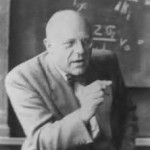 Social media blew up this past week with articles about college professors. One such article, written by a college professor, crooned “I am not your teacher, I am your professor.” The individual went on to regale readership about what he thinks are the obvious distinctions between high school teachers and college professors. Aside from my immediate visceral reaction against his hubris, I seethed at his obvious contempt for students who should bow, cow-like at his feet, and his vain attempt to suggest that college teaching surpassed high school teaching.
Social media blew up this past week with articles about college professors. One such article, written by a college professor, crooned “I am not your teacher, I am your professor.” The individual went on to regale readership about what he thinks are the obvious distinctions between high school teachers and college professors. Aside from my immediate visceral reaction against his hubris, I seethed at his obvious contempt for students who should bow, cow-like at his feet, and his vain attempt to suggest that college teaching surpassed high school teaching.
I have taught high school students for 20 years, college freshmen through PhD students for 15 years. Since I have been on both sides of the educational spectrum, I will refrain from further responses to the professor while being forthright about the seniors at TMS: I would put my students sitting here in front of me today up against his students any day.
Yes, there are times when students should sit and listen, become note-takers, read contemplatively, turn in teacher-directed assignments, take tests, and pay attention to long-winded lectures. But if, after clearly establishing a foundation for content, students are not given an opportunity to show how, what they have learned makes a difference in their thinking, being, & living, then education has failed. But education at The Master’s Study is a huge success.
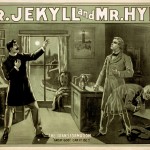 What I am about to tell you I have not said before to a group. It was at the end of the Gothic horror class, I was listening to a number of superior presentations. Student work included Christian understanding of feminism, the ‘last girl’ concept, “fear,” and artistic renditions—musical and visual—from horror movies. At some point during the presentations it dawned on me that I had to change my definition of teaching. It was a hammer blow inside my mind. And here is what I have not said before to a group. Education has taken place when students don’t need the teacher anymore. I saw it in their eyes. I heard it in their voices. Their projects made it clear. They had taken the essential ideas from a Gothic horror course and had seen for themselves applications to their fields of interest: music, art, psychology, sociology, and more. My students did not need me anymore.
What I am about to tell you I have not said before to a group. It was at the end of the Gothic horror class, I was listening to a number of superior presentations. Student work included Christian understanding of feminism, the ‘last girl’ concept, “fear,” and artistic renditions—musical and visual—from horror movies. At some point during the presentations it dawned on me that I had to change my definition of teaching. It was a hammer blow inside my mind. And here is what I have not said before to a group. Education has taken place when students don’t need the teacher anymore. I saw it in their eyes. I heard it in their voices. Their projects made it clear. They had taken the essential ideas from a Gothic horror course and had seen for themselves applications to their fields of interest: music, art, psychology, sociology, and more. My students did not need me anymore.
Mr. Claude Robinson agrees. Claude Robinson is one of my Capital masters students who shadowed me in my teaching this past fall. After almost every TMS class Claude would come to me and say these words, “I have never seen anything like it. I have taught for years but have not seen students like these who have read, thought deeply, and can now converse with universal ideals showing how they are relevant to life. When I first signed on to shadow you,” Claude continued, “I thought homeschool teaching would be a joke. I have never been so wrong. I have never seen teaching like this, a class like this, or students like this.”
 I am 58 years old. During our last session this past Monday I made that remark to these 18 year olds. I said, “I am 40 years your senior. Someday you will be 58. My body will have hit the dirt long before. But perhaps you will look back on this day, when you are 58, and be able to tell another generation of 18 year olds that they now bear the responsibility of thinking Christianly, being Christians, living as Christians before the next generation.”
I am 58 years old. During our last session this past Monday I made that remark to these 18 year olds. I said, “I am 40 years your senior. Someday you will be 58. My body will have hit the dirt long before. But perhaps you will look back on this day, when you are 58, and be able to tell another generation of 18 year olds that they now bear the responsibility of thinking Christianly, being Christians, living as Christians before the next generation.”
Today I say to you, these 18 year olds are ready to take the next step into college, into life. You see, the ideas in a Gothic horror lit or final thesis class are woven through Eternal, transcendent Truth given from the Triune Creator of the universe, whose message is similar to my seatmate on the plane, “Theology is incomplete without horror,” but more, what she did not know, that Jesus has conquered the horror by the Cross, giving us the principles of living this life while anticipating the life to come.
Address given at The Masters Study graduation breakfast, Thursday, 21 May 2015. Each year I instruct TMS seniors in Gothic horror literature (fall) and their final thesis (spring). Seniors write a 15 page thesis which they then must reduce to 600 words and present on this day.
Picture credits: https://en.wikipedia.org/w/index.php?title=Gothic_fiction https://en.wikipedia.org/wiki/Ary_Scheffer#/media/File:Ary_Scheffer_-_The_Temptation_of_Christ_(1854).jpg and https://comicsgrinder.files.wordpress.com/2014/01/william-shatner.jpg

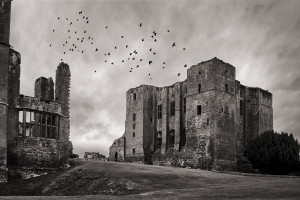
Edgar Allan Poe was my favorite author in high school as well, Dr. Eckel, followed by Shakespeare. I loved Shakespeare’s tragedies far more than his comedies. For me, the world is gripped by tragedy and horror. Shakespeare captured the horror within and the horror without in his tragedies. Poe did the same. I believe that his poem, The Raven, is one of the most horrifying pieces of poetry written. It is the raven’s message, persistent and forceful against the character’s statements and questions, that is so truly horrifying.
How fortunate it is that Christ, the suffering God, is the ultimate triumph over horror, suffering, and evil. How fortunate it is that we have the chance to partake in that victory and to be free of suffering. But we must never forget horror. Indeed, I think that God’s intention for us is not to forget horror or to ignore it, but to see how His glory and goodness is contrasted to it.
Suffering and horror make God’s glory shine brighter, not because God revels in misery but because God’s goodness is contrasted by horror. How much brighter the light after we have groped about in the darkness? How much more glorious it is to be in the presence of God when we have stood the test of trials and tribulations, warring with the world, unseen forces, and ourselves?
We won’t have forgotten about horror in the new world, even though suffering will not be present, because horror helps us to see and appreciate God’s moral law and His beauty, truth, and goodness.
I am both the most extreme of pessimists and brightest, most hopeful of optimists. I think such a thing is born naturally from the depth of understanding that comes with being a mature Christian.